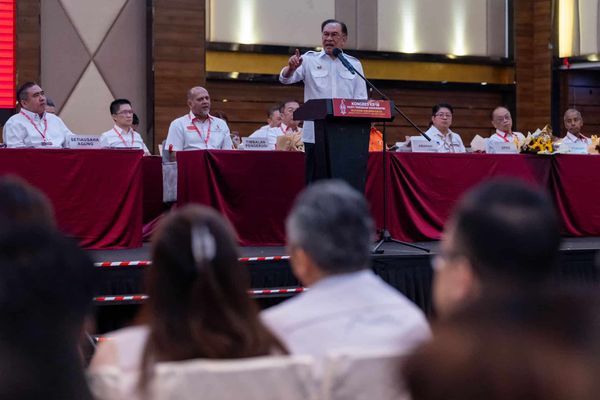KUALA LUMPUR, March 16 — The government remains committed to implementing the institutional reform agenda, including a proposed amendment to the Federal Constitution to cap the Prime Minister's term at 10 years, said Prime Minister Datuk Seri Anwar Ibrahim.
However, the effort must be approached with care, to avoid the risk of failure.
He said that in implementing any reform, the government must also consider history, and learn from the experiences of foreign countries like Poland and the Czech Republic, where reforms failed, partly due to being rushed.
“What sets us apart from the previous government? We are committed to reform decisions, to the point where some fear they could be detrimental. However, for those who support reform, they are often seen as impatient to see change.
“I want to stress that reform is unlikely to succeed if implemented hastily or too abruptly. From history, we have learned that reforms carried out in such a manner often end in failure,” Anwar said.
He was speaking at the 18th DAP National Congress at the Ideal Convention Centre in Section 15 today.
Anwar, who is also Pakatan Harapan chairman, said that this was not an excuse to delay reforms, as various changes had already been made during the administration's two years, including the approval of amendments to the Parliamentary Services Bill 2025.
Yet many institutional reform agenda items remain to be implemented. The public must understand that the process of change, particularly involving legislation or the Federal Constitution, requires strong support from MPs.
“The process of amending and reforming this institution is not easy; we need a consensus or a two-thirds majority of support from the Dewan Rakyat members, as well as the consent of the Conference of Rulers.
“For example, we are committed to limiting the Prime Minister’s term to 10 years. I, along with Parti Keadilan Rakyat and Pakatan, have agreed, but we still need the support of a two-thirds majority. If such agreement is reached, we can present it at the next sitting,” he said.
In the meantime, Anwar once again reiterated the government’s firm commitment not to interfere in any decisions involving the judiciary.
However, the government has a responsibility to ensure that those appointed to the judiciary are credible, independent, and free from conflicts of interest, like business dealings and corruption.
“We do not interfere in the affairs of the judiciary in making decisions, but we want to ensure that those appointed are credible, independent, and free from involvement in business and corruption.
“This is our responsibility in government, as we must answer to Parliament and the people,” he said, commenting on the Malaysian Bar Council's resolution yesterday.
The resolution strongly condemned any interference by any person, whether from the executive, legislature, the Bar, or any other individuals or entities, to circumvent the constitutional and statutory framework for judicial appointments as provided in the Federal Constitution and the Judicial Appointments Commission Act 2009, among other things.
The Prime Minister noted that independent bodies should conduct oversight of the judiciary to ensure proper checks and balances.
“I am not interfering; there are several other processes we are discussing. This does not mean that the Prime Minister, ministers, or all judges are always right.
“There must be supervision, checks and balances, and bodies that examine and monitor the judiciary — whether they pay taxes or if there are elements of corruption, as this has occurred extensively. Therefore, every change must be implemented carefully,” he said.
Anwar also emphasised that the government has never interfered in any case currently being tried in court, including those involving prominent individuals.
“I want to ask, in which cases have we interfered? In which decisions did I discuss matters with the judge? None. The Prime Minister cannot compromise or be involved in any court case,” he said.
— Bernama




